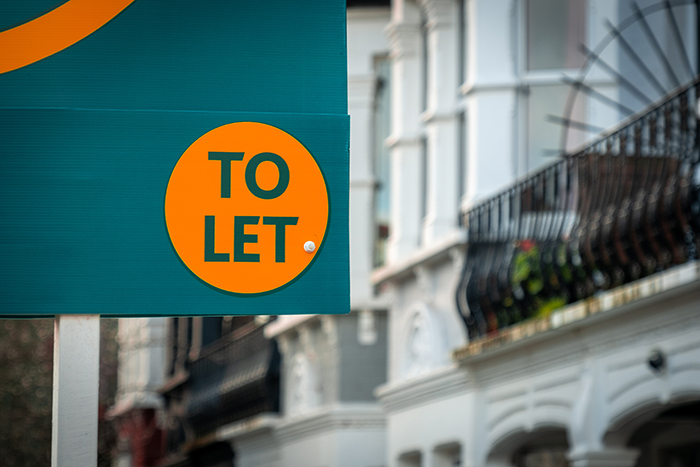
The share of homes sold by UK landlords has slowed to 14% so far this year from 15.7% 12 months ago, leaving them on course to sell off 139,820 properties in 2023, data from Hamptons shows.
These estimated disposals by buy-to-let owners are some 53,000 fewer than last year and 62,000 less than in 2021 when landlord sales peaked, adds the estate agent’s latest monthly lettings index.
Scotland is the only region in the UK where the landlord sell-off has accelerated this year to 12% of all sellers, up from 10% in 2022.
New purchases hit a record low in the region, amid tighter regulations and rent caps imposed by the Scottish government.
However, the report adds that annual UK lettings growth remained at 11.7% in October, lifting rents to £1,345 a month, led by double-digit hikes in Greater London, up 14.8%, and Scotland, up 12.9%.
This was the third consecutive month of double-digit rent increases and the sixth double-digit hike during the last 12 months.
The report says that by the end of this year, private landlords will have sold 294,300 more homes than they’ve bought since 2016.
At this time, a raft of new landlord restrictions were introduced over the coming years, starting with an additional 3% stamp duty surcharge brought in by then-chancellor George Osborne.
The survey says the landlord sell-off is more than the number of homes in Manchester, with a housing stock of 237,000, or Cornwall, at 288,000.
Hamptons head of research Aneisha Beveridge says: “There’s a strong argument that landlords have been hit harder by higher rates than anyone else. However, despite these challenges, most landlords are sticking it out.
“Strong rental growth is softening the blow, but they’re also drawing on their equity and cash reserves to see them through. Portfolio investors — who tend to be more highly leveraged — are juggling their assets by selling one or two properties to reduce their mortgage debt on the rest of their portfolio, rather than selling up entirely.
Beveridge adds: “Most landlords cashing in are one of the 10% to 20% of mortgaged investors who face making losses when remortgaging at higher rates. Typically, they bought low-yielding properties in the South of England relatively recently or they’ve been aggressively maximising their leverage and extracting equity to grow their portfolio.
“The real supply issue facing the private rented sector hasn’t just been caused by landlords selling up, but also because there’s been little appetite among investors to purchase new BTLs over the last few years.
“This has reduced the number of homes available to rent which is fuelling rental growth. After adding wider inflationary pressures on top, we think rents will have risen by 25% by the end of 2026.”



